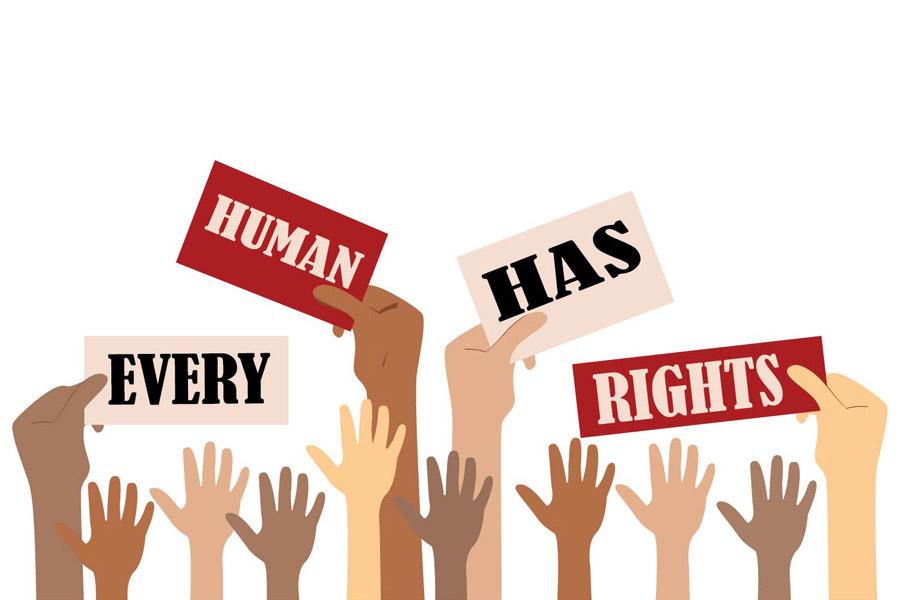As part of events marking this year’s International Human Rights Day, which is celebrated every December 10, the United Nations Secretary General, António Guterres, delivered a stark reminder that, “mankind now faces a harsh truth that human rights are under assault.”
Though Guterres spoke broadly on the backdrop of increased global human rights violations in war-torn Gaza, Syria, Lebanon as well as Ukraine and Sudan, his words could not have been truer, even in countries like Nigeria where accountability for human right violations remains elusive.
This year’s theme, “Our Rights, Our Future, Right Now”, reminds us that human rights are universal rights to which all of us are entitled, as individuals and a collective. That entitlement is without distinction, based on religion, ethnicity, gender or any other status and how we uphold it now, will determine the future of our country.
Unfortunately, 25 years of uninterrupted democracy has not seen Nigeria rise above several human rights abuses, even when human rights and democracy are two sides of the same coin; meaning, you cannot have one without the other. Nigeria’s ranking on the world index equally reflects our poor performance, scoring 0.41 and 0.40 in 2023 and 2024 respectively. For both years, Nigeria was ranked 120 out of 140 countries in the World Human Rights and Rule of Law Index.
- Finance Phantom AI Review 2024: Scam Or Legit Trading Platform? – Quick Facts!
- Tinubu arrives N/Assembly to present N47.96trn 2025 budget
Many stakeholders and human rights defenders are disheartened by the country’s ranking and fear that respect for dignity, equality and freedom of citizens appear to be decreasing. Nigerians are not oblivious of the fact that underlying many human rights violations is corruption and the need to silence and oppress dissenting voices. More so, at the centre of many human rights abuses are Nigeria’s public office holders and security forces at the state and federal levels, who use their offices and positions to harass and intimidate citizens.
We have all painfully watched the arbitrary arrests and unlawful detentions of minors who were said to have participated in the #EndBadGovernance protests. Still, Nigerians have watched and read with dismay about threats, harassment and even detention of journalists and private citizens on flimsy reasons.
Particularly troubling is the way Nigeria’s security agents try to make a statement by invading the homes of journalists and other civilians in a commando style, even when these individuals could easily be invited for questioning.
This practice must stop. Our law enforcement agents should honour their badges and respect the law of the land. They are neither bandits nor kidnappers who invade houses at night to abduct people for ransom. Police and other security agencies’ investigations must be conducted in a respectful, professional and humane manner.
While it is more convenient to point accusing fingers at the police for brutality and disregard for the rule of law, almost all Nigeria’s security forces, including the military and anti-corruption agencies are guilty of such brazen human rights infringements at certain moments. At the state level, it appears to be getting worse with several reports of political office holders using the police and thugs to physically assault, harass and intimidate opponents, as well as other dissenting voices.
Again, while many instances of human rights violations are viewed from the lens of physical brutality, intimidation and harassment, there are other basic rights and welfare of citizens that fall under human rights, yet are often ignored. Human rights issues around accessibility to healthcare, education, justice and gender equality are oftentimes lost in the discussions around human rights.
Most importantly, for a country like Nigeria where citizens face human rights violations from both state and non-state actors in conflict zones, the basic right to adequate food is a human right that our leaders must pay attention to. This right requires governments to provide the enabling environment for people to use their potential to procure adequate food for themselves and their families.
We at the Daily Trust call on the Nigerian government to ensure a safe and equitable environment for all citizens to enjoy their basic rights of safety, education, health, speech and other rights as enshrined in the Nigerian constitution. We remind law enforcement agents and political office holders that Nigeria is a signatory to many international and regional human rights conventions, and therefore has an obligation to ensure these rights are guaranteed. Nigerians fought for this democracy, some even with their lives, and therefore must be allowed to enjoy it in an atmosphere of peace, freedom and dignity.

 Join Daily Trust WhatsApp Community For Quick Access To News and Happenings Around You.
Join Daily Trust WhatsApp Community For Quick Access To News and Happenings Around You.


